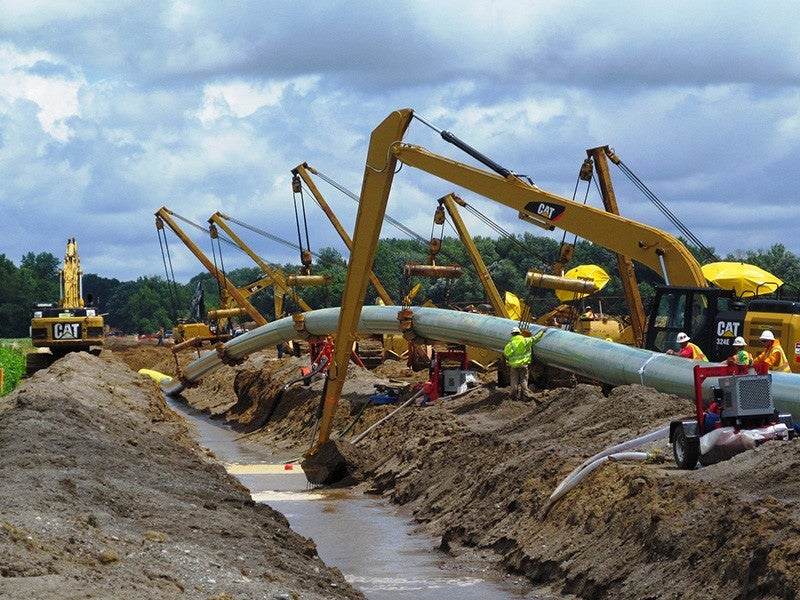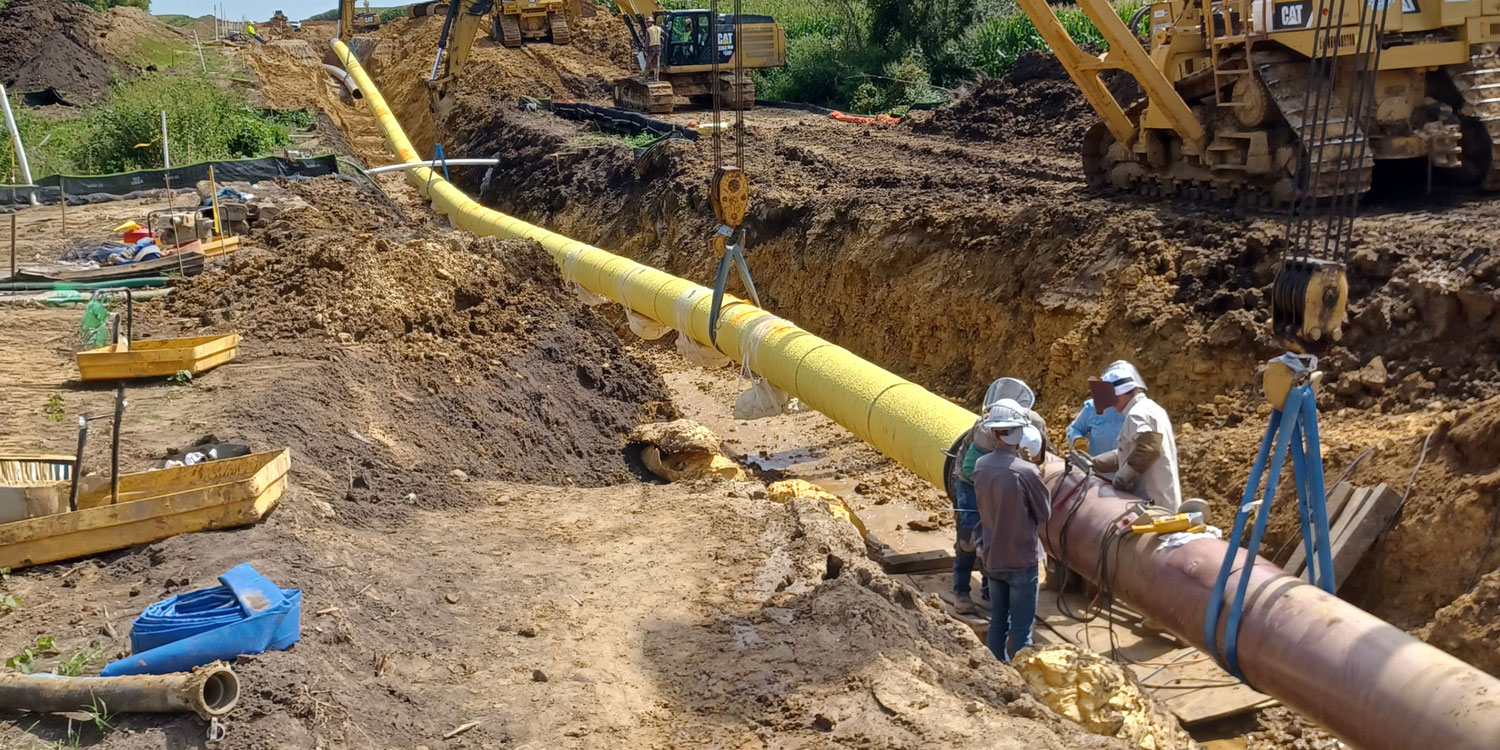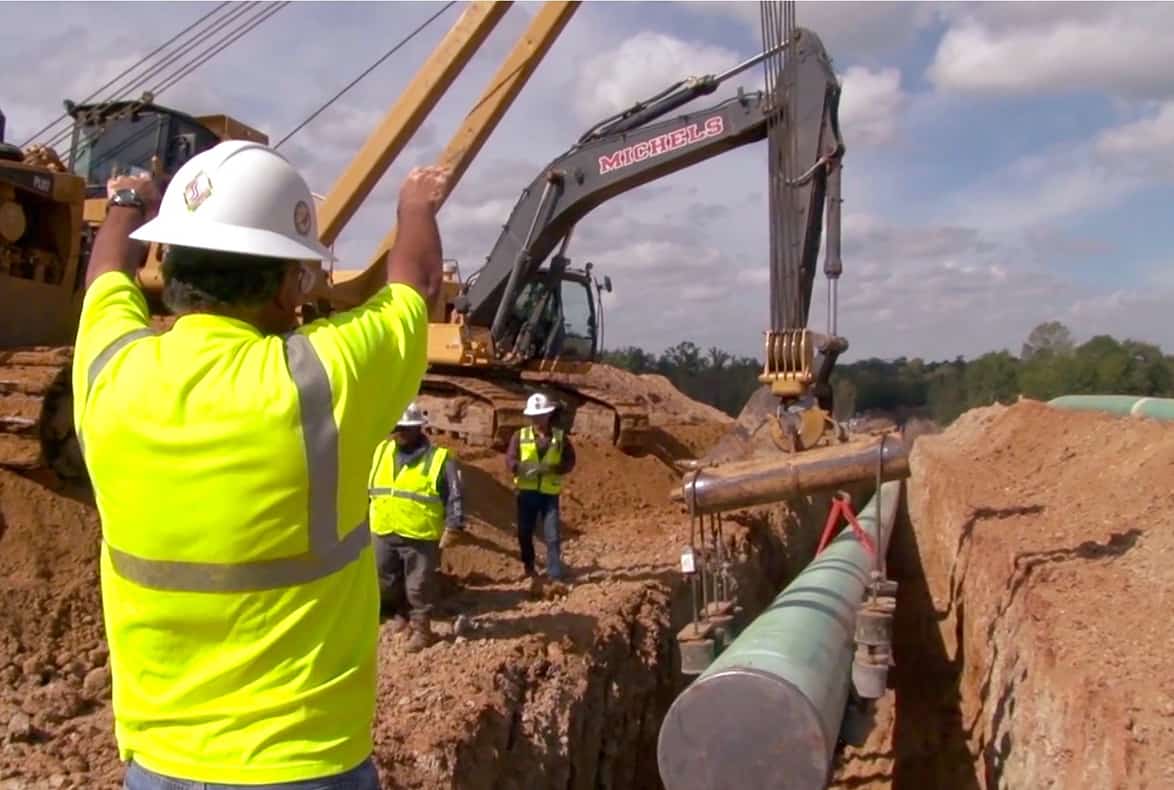Comprehending the Trick Functions of Pipeline Solutions and Their Effect On Efficiency
Pipeline services play a crucial role in various markets, affecting operational efficiency noticeably. Secret functions, such as sophisticated monitoring innovations and upkeep strategies, are important for reducing downtime. In addition, regulatory compliance warranties safety and security and environmental protection. Nevertheless, the interaction between design, facilities, and economic variables can complicate these processes. Comprehending exactly how these components impact general efficiency increases vital concerns regarding finest methods and future developments in the area.
The Duty of Modern Technology in Pipeline Surveillance
As advancements in technology proceed to advance, the value of reliable pipeline surveillance has ended up being increasingly apparent. Modern pipeline systems rely upon innovative tracking tools that improve operational effectiveness and safety. Technologies such as real-time information analytics, sensors, and drones give drivers with immediate insights into pipeline conditions, allowing them to identify leakages, deterioration, and other potential issues before they rise right into substantial troubles.
The integration of Internet of Points (IoT) devices has actually changed conventional surveillance approaches, enabling for continuous security and automated reporting. This positive strategy not only lessens threats yet additionally enhances upkeep timetables and resource appropriation. In addition, advanced software application platforms help with data visualization and interpretation, empowering decision-makers to respond promptly to anomalies. Jointly, these technological technologies not only improve pipe honesty yet also foster ecological stewardship by reducing the prospective influence of leakages and spills.
Upkeep Approaches for Boosted Efficiency
Effective maintenance techniques are essential for maximizing pipe effectiveness. Implementing predictive maintenance strategies, adhering to routine examination procedures, and creating robust emergency situation reaction plans can substantially boost operational integrity. These strategies not just lessen downtime however also add to the overall security and stability of pipeline systems.
Anticipating Upkeep Techniques
Predictive upkeep methods are progressively identified for their capacity to boost functional effectiveness in pipe services. By leveraging data analytics and monitoring innovations, these strategies enable drivers to anticipate equipment failings before they take place. This aggressive method reduces unplanned downtime, decreases maintenance prices, and prolongs the life expectancy of critical assets. Sensors and IoT gadgets play a pivotal role in gathering real-time data, permitting the analysis of devices health and wellness and performance patterns. Artificial intelligence formulas evaluate this information to recognize patterns and anticipate potential problems. Pipeline operators can arrange upkeep tasks throughout non-peak times, maximizing resource appropriation and guaranteeing continuous operation. Eventually, the adoption of anticipating maintenance cultivates a more dependable and efficient pipeline framework.

Routine Evaluation Protocols
Routine evaluation methods act as a cornerstone of upkeep methods focused on boosting efficiency in pipe procedures - Midland oilfield pipeline services. These methods involve methodical assessments of pipeline stability, concentrating on finding possible concerns prior to they escalate. Regular evaluations normally consist of aesthetic evaluations, leak discovery technologies, and pressure monitoring to assure peak efficiency. By adhering to well-known timetables, drivers can identify deterioration, product wear, or obstruction, thus reducing downtime and repair prices. Additionally, data accumulated throughout evaluations can notify anticipating upkeep initiatives, permitting a positive method to pipe administration. Eventually, regular inspections not just extend the life-span of pipeline infrastructure but additionally add to safer and much more reliable transportation of sources, enhancing general operational performance
Emergency Feedback Planning
Emergency situation reaction preparation is necessary for maintaining efficiency in pipe operations, making certain that operators are prepared to attend to unforeseen events quickly and properly. A well-structured emergency situation response strategy consists of clear methods, designated roles, and communication strategies to reduce threats related to pipe failings. Regular drills and training improve team readiness and acquaint employees with emergency treatments. Additionally, having conveniently offered resources, such as spill containment tools and emergency situation get in touch with listings, can greatly lower reaction times. By integrating real-time tracking modern technologies, operators can promptly identify and react to issues, lessening ecological impact and operational downtime. Eventually, a comprehensive emergency situation reaction plan not only safeguards assets and workers yet also strengthens the general efficiency of pipeline solutions.
Governing Compliance and Safety Standards
Regulative compliance and safety standards play a crucial role in the pipe solutions market. Creek Pipe Midland TX. Complying with market policies guarantees that companies execute effective safety methods and take the chance of monitoring strategies. This dedication not just safeguards personnel and the atmosphere but also boosts general operational efficiency
Conformity With Market Regulations
Conformity with sector guidelines is crucial for making certain the safety and security and effectiveness of pipe operations. Governing frameworks, such as those developed by the Epa (EPA) and the Pipeline and Hazardous Materials Safety And Security Administration (PHMSA), established strict standards that drivers need to comply with. These guidelines cover different aspects, consisting of pipe style, building and construction, upkeep, and surveillance, guaranteeing that systems operate securely and successfully. Non-compliance can result in extreme penalties, functional delays, and ecological threats. By adhering to these regulations, pipeline companies not just protect public safety and the setting but additionally improve their functional effectiveness. Ultimately, governing conformity fosters depend on among stakeholders, guaranteeing that pipeline solutions can run seamlessly in a competitive landscape while fulfilling legal obligations.

Security Procedure Application
Efficient safety protocol implementation is a vital element of pipe procedures, closely connected to regulative conformity and security standards. Complying with these procedures not just ensures the protection of personnel yet likewise safeguards the atmosphere and facilities. A robust security structure consists of routine training, detailed evaluations, and making use of suitable safety devices. Organizations has to stay watchful in updating their methods to mirror adjustments in policies and technical innovations. Conformity with established safety requirements reduces the risk of mishaps and enhances operational effectiveness. Additionally, a society of safety promotes employee interaction and accountability, adding to overall business success. Ultimately, efficient safety and security method execution is critical in preserving check that the honesty of pipe solutions and accomplishing lasting sustainability in procedures.
Danger Administration Methods
Applying durable risk management methods is vital for assuring that pipe operations follow regulatory requirements and security criteria. Organizations needs to identify prospective threats and analyze dangers related to pipe activities. This includes carrying out complete examinations, making use of innovative monitoring technologies, and preserving conformity with sector guidelines. Normal training for workers on security procedures boosts situational understanding and prepares teams to respond efficiently to emergencies. Furthermore, developing contingency plans and conducting drills can greatly minimize dangers. Teaming up with governing bodies makes certain alignment with developing safety and security requirements. By prioritizing danger administration, pipe services can enhance functional effectiveness while safeguarding both the environment and public security. Eventually, a positive technique to take the chance of administration cultivates a culture of safety within the sector.
Pipeline Style and Facilities Considerations
How can the design and infrastructure of pipes influence total operational performance? The arrangement of pipelines plays an important role in establishing their effectiveness. Reliable style minimizes rubbing losses, therefore lowering power intake during liquid transport. Elements such as size, material selection, and layout straight impact flow rates and upkeep requirements.
In addition, strategic positioning of shutoffs and checking systems enhances functional control and safety. Creek Pipe local contractor. Framework considerations, consisting of accessibility for repair and maintenance, greatly affect downtime and general productivity
Incorporating innovative technology for real-time monitoring helps with punctual detection of leaks or ineffectiveness, ensuring speedy actions to concerns. The general architectural stability, influenced by product resilience and ecological aspects, also forms lasting operational success. Thoughtful style and durable facilities are vital for maximizing pipeline efficiency, inevitably adding to the dependability and productivity of pipe services.
Ecological Impact and Sustainability Practices
While the need for pipeline services remains to grow, recognizing the ecological effect and embracing sustainability methods has actually become significantly necessary. The building and procedure of pipes can notably affect environments, wild animals environments, and water sources. To minimize these effects, business are executing advanced innovations and practices focused on minimizing exhausts, protecting against spills, and reducing land disturbance.
Sustainability initiatives usually include the original source using environmentally pleasant products, improving power effectiveness, and utilizing renewable resource resources to power procedures. Additionally, companies are increasingly conducting complete ecological assessments prior to task initiation, guaranteeing conformity with regulations and stakeholder engagement.

Expense Management and Financial Consider Pipeline Services
As the pipeline sector grows, reliable expense monitoring and understanding financial elements become crucial for keeping competition. Business encounter different economic stress, consisting of varying product expenses, labor expenditures, and regulative conformity costs. To navigate these obstacles, pipeline company must adopt strategic monetary preparation and budgeting practices.
Spending in modern technology can improve operational effectiveness, inevitably decreasing expenses over time. Furthermore, reliable project administration warranties that sources are designated successfully, reducing delays and unanticipated expenditures.

Market problems, such as need for energy and geopolitical elements, likewise affect financial practicality. Business need to stay active, adjusting their methods in response to these external variables.
Frequently Asked Questions
What Are the Different Kinds Of Pipeline Provider Available?
Various sorts of pipeline services include transport, storage, maintenance, evaluation, and fixing. Each solution plays a crucial duty in ensuring the smooth movement of products, improving safety and security, and reducing functional disruptions across different industries.
Exactly How Typically Should Pipeline Inspections Be Carried Out?
Pipeline examinations must be carried out routinely, commonly every one to 3 years, depending on the type and problem of the pipeline. More constant examinations may be needed for straight from the source older or high-risk pipelines to guarantee safety and security and stability.
What Are the Main Causes of Pipeline Failings?
The main reasons of pipe failures include deterioration, faulty building and construction, material defects, exterior damages, leaks, and functional errors. Each element contributes significantly to possible risks, highlighting the value of normal maintenance and monitoring for safety.
Exactly How Can Business Enhance Pipeline Service Dependability?
Firms can boost pipe solution integrity by executing routine maintenance schedules, making use of innovative tracking innovations, conducting extensive inspections, purchasing worker training, and adopting positive risk administration approaches to anticipate and reduce possible failings.
What Role Do Operators Play in Pipeline Providers?
Operators play a crucial role in pipe services by ensuring secure transportation, preserving devices, keeping track of system honesty, collaborating upkeep, and reacting to emergency situations. Their competence directly affects operational performance and minimizes interruptions in service delivery.